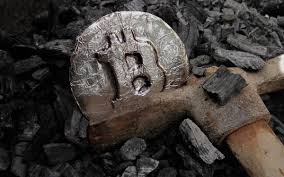China has long been a dominant force in the world of cryptocurrency mining, leveraging its cheap power sources and concentration of mining chip manufacturers to maintain its lead in hashpower. However, according to Jameson Lopp, a prominent cypherpunk and cryptocurrency advocate, this dominance may not last indefinitely. As mining becomes more decentralized and other countries offer competitive advantages, the landscape of Bitcoin mining is poised for significant change.
China’s Current Position in Crypto Mining
The Backbone of Global Mining
China is home to a significant share of the world’s Bitcoin hash rate, owing to its abundant and affordable energy sources, particularly hydropower. Additionally, the country houses some of the world’s largest mining chip manufacturing facilities, which supply equipment to miners globally.
Factors Supporting Dominance
- Cheap Electricity: Regions like Sichuan provide miners with low-cost hydropower, making mining highly profitable.
- Chip Manufacturing Monopoly: Many of the key facilities for producing mining chips are located in Asia, particularly China, giving the country a strategic edge.
Lopp’s Prediction: A Shifting Landscape
Breaking the Monopoly
Lopp suggests that China’s mining monopoly will face challenges over time as:
- Global Semiconductor Expansion: More semiconductor foundries outside Asia start producing mining chips.
- Cheaper Energy Sources Worldwide: Countries with lower power costs industrialize, attracting mining operations.
In his blog, Lopp notes:
“Over the very long term I expect we will see semiconductor foundries outside of Asia begin producing more mining chips and countries with even cheaper power sources will continue to become more industrialized, thus providing more competition when miners are seeking out new locations to set up shop. China’s mining dominance is unlikely to last.”
Decentralization Advancements
Lopp emphasizes the importance of decentralizing mining to give individual hashers more control. He highlights two ongoing projects—Betterhash and Stratum V2—as key efforts to decentralize Bitcoin mining pools.
The Role of Decentralization in Mining
Why Decentralization Matters
Decentralization reduces the risk of a single entity or nation gaining disproportionate control over Bitcoin mining. By empowering individual miners, decentralized protocols like Betterhash and Stratum V2 enhance the resilience and security of the Bitcoin network.
Projects Driving Decentralization
- Betterhash: A mining protocol designed to allow individual miners in a pool to control which transactions are included in blocks, rather than relying on pool operators.
- Stratum V2: An updated mining protocol aimed at improving security, efficiency, and decentralization by enabling miners to participate more directly in block construction.
Does China Pose a Threat to Bitcoin?
Lopp’s Perspective
While China’s dominance in mining has raised concerns about potential threats to Bitcoin, Lopp argues that the risk of a state-coordinated attack is minimal. He explains:
“It’s hard to imagine a scenario in which a state actor would be able to quickly and covertly seize enough hashpower to perform an ongoing attack that lasts more than a few hours.”
The Worst-Case Scenario
In a hypothetical worst-case scenario where state actors seize all mining equipment in China, Lopp suggests:
- Empty Block Mining: The attackers could mine blocks without transactions, halting confirmations across the network.
- Network Response: The global Bitcoin community could respond by coordinating a code change, rendering the attackers’ hardware ineffective.
This scenario underscores the resilience of the Bitcoin network, as well as the importance of decentralization to mitigate risks.
Future Challenges for China’s Mining Dominance
Expanding Global Competition
As more countries develop cheap and renewable energy sources, they become attractive alternatives for mining operations. Nations in South America, Eastern Europe, and Central Asia are emerging as potential competitors.
Regulatory Shifts
Regulatory policies in China and elsewhere will play a significant role in shaping the future of mining. Stricter regulations or higher electricity costs could incentivize miners to relocate to more favorable jurisdictions.
Technological Evolution
Advancements in chip manufacturing and mining hardware could redistribute the balance of power. Companies outside Asia may invest in localized chip production to reduce dependence on Chinese manufacturers.
Opportunities in Decentralized Mining
Empowering Individual Miners
By decentralizing mining, projects like Betterhash and Stratum V2 empower individual miners to control block validation and reduce the influence of large mining pools.
Strengthening Bitcoin’s Security
Decentralized mining protocols enhance the Bitcoin network’s security by distributing hashpower more evenly across participants. This reduces the risk of 51% attacks and other forms of network manipulation.
Conclusion
China’s current dominance in cryptocurrency mining is undeniable, but as Jameson Lopp predicts, it is unlikely to last forever. The rise of global competition, advancements in chip manufacturing, and efforts to decentralize mining are poised to reshape the industry. While concerns about potential threats from China exist, Bitcoin’s decentralized nature and ongoing innovations ensure its resilience.
The future of mining will depend on the collective efforts of the global crypto community to foster decentralization, enhance security, and adapt to an evolving landscape. As countries and companies explore new opportunities in mining, the era of China’s unchallenged dominance may soon give way to a more distributed and robust network.
To learn more about the innovative startups shaping the future of the crypto industry, explore our article on latest news, where we delve into the most promising ventures and their potential to disrupt traditional industries.
Disclaimer: The information provided is not trading advice, Bitcoinworld.co.in holds no liability for any investments made based on the information provided on this page. We strongly recommend independent research and/or consultation with a qualified professional before making any investment decisions.




